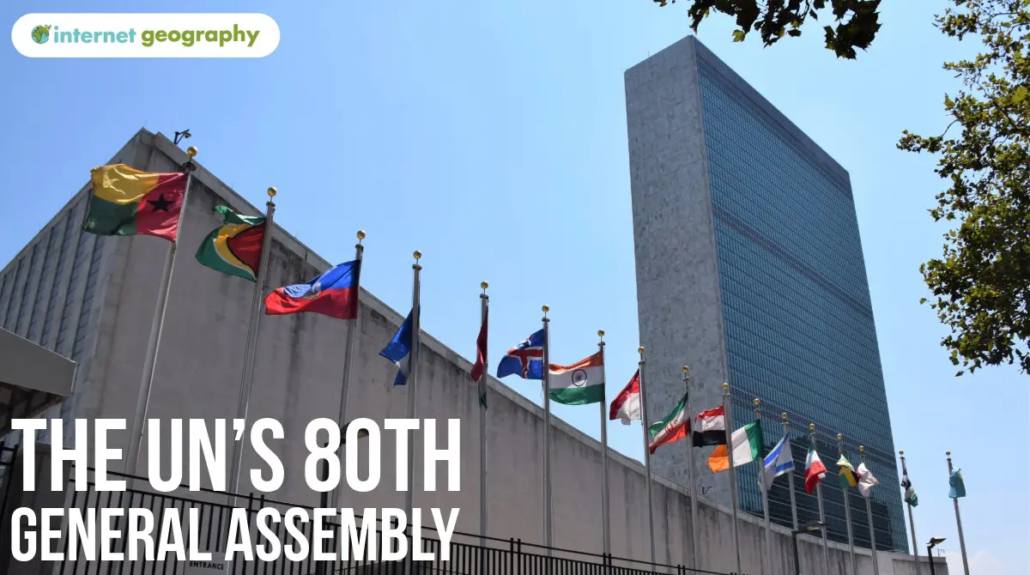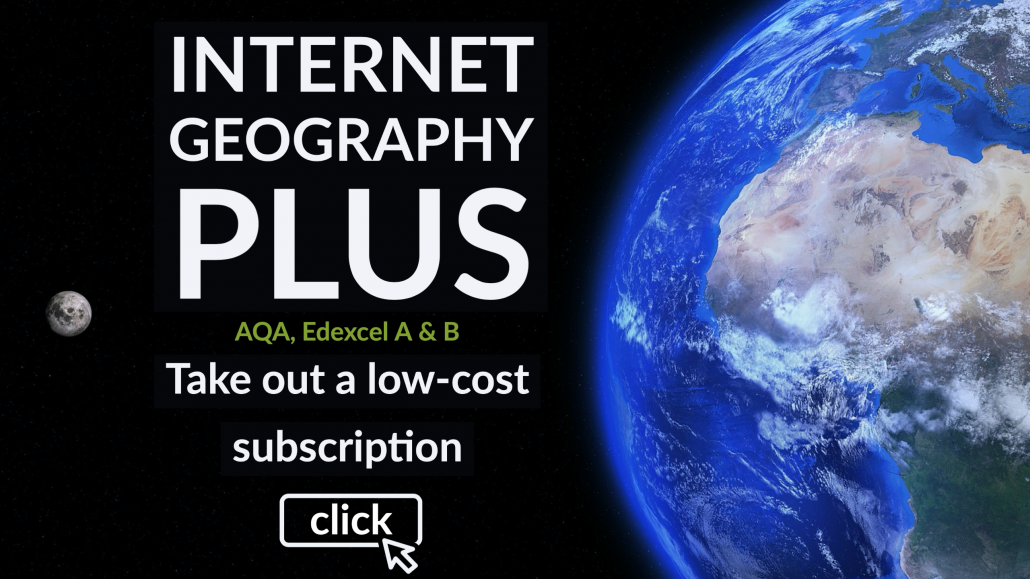When Donald Trump arrived at the United Nations in New York this September, he didn’t make headlines for his speech — instead, it was for an escalator that broke down and a teleprompter that failed. Trump joked that the UN couldn’t even get the basics right.
But while that story grabbed attention, the real focus was the 80th United Nations General Assembly (UNGA). This year’s theme is:
“Better together: 80 years and more for peace, development and human rights.”
It’s a reminder that in a connected world, global challenges can only be solved through cooperation.
What is the United Nations?
The United Nations (UN) was founded in 1945 after World War II. It aimed to prevent wars and encourage countries to cooperate. Today, 193 countries are members. The UN deals with worldwide problems such as:
- Climate change
- Poverty and inequality
- Wars and peace agreements
- Human rights
- Health crises and disasters
The Role of the UN
The UN works in several ways that link closely to geography:
- Peace and security – negotiating truces, sending peacekeepers.
- Development – setting goals like the Sustainable Development Goals (SDGs).
- Human rights – protecting vulnerable groups such as refugees and children.
- Global cooperation – providing a stage where leaders debate issues that cross borders.
How does the UN provide practical support?
The UN isn’t just about speeches — it takes action on the ground. Examples include:
- Humanitarian aid: When a massive earthquake struck Turkey and Syria in 2023, the UN helped deliver food, medicine, and shelter.
- Refugee support: The UN Refugee Agency (UNHCR) assists millions of people displaced from their homes due to conflict or disaster.
- Health crises: During the COVID-19 pandemic, the UN’s World Health Organisation (WHO) coordinated global responses and vaccine distribution.
- Food security: The World Food Programme (WFP), another UN agency, provides meals in regions affected by famine or drought, such as East Africa.
This illustrates how the UN directly impacts everyday survival for people facing disasters linked to geography, from floods to famines.
Geography focus at the 80th session
The theme “Better together” reflects how geography shows people, places, and environments are connected. Leaders are focusing on:
- Climate change: Small island states say rising seas threaten their existence.
- Regional inequality: Countries in Africa and Asia argue they need more funding to adapt to floods, droughts, and food shortages.
- Energy and development: Some nations push for renewable energy, while others seek assistance to afford the green transition.
- Peace and human rights: Conflicts in Ukraine, Gaza, and Sudan remind the world that violence has global consequences.
Concerns About the UN
Although the UN plays a vital role, many people question its effectiveness. One of the biggest concerns is that the UN sometimes struggles to prevent or end wars. Member states often ignore its resolutions, and the organisation has been criticised for not acting quickly enough in crises.
The UN Security Council is a body comprising 15 countries that makes key decisions regarding global peace and security, including peacekeeping missions and the imposition of sanctions. Five countries on the UN Security Council- the United States, the United Kingdom, China, Russia, and France have the power to veto. If one of them disagrees, they can block action, even if most countries support it. This makes it hard for the UN to act in conflicts where these powers have interests.
Money is another problem. The UN recently announced significant budget shortfalls, leading to job losses and warnings that some aid programmes may need to be cut back. Without sufficient funding, agencies such as the WFP and UNHCR are unable to provide as much support in areas affected by drought, floods, or conflict.
The organisation has also faced criticism for being slow and bureaucratic, meaning aid sometimes arrives later than needed. In some peacekeeping missions, there have even been reports of misconduct by UN staff, which undermines trust in its work.
These concerns don’t mean the UN is pointless. Instead, they show that while the organisation is vital in bringing countries together, it is also limited by politics, money, and management.
Why Does This Matter to You?
The UN is based on the concept of global interdependence, which holds that what happens in one place affects others. If the UN is effective, it can help vulnerable regions mitigate disasters and conflicts. However, if it fails, the consequences, ranging from migration to food shortages and climate impacts, can be felt worldwide.
Something to Think About
The broken escalator may have made people laugh, but the real story is this: the UN is where countries come together to tackle problems that no nation can solve alone.
The theme, “Better together: 80 years and more for peace, development and human rights,” is a reminder that geography reveals how we are all interconnected, whether through climate systems, migration, trade, or disasters. And the UN is one of the few places trying to manage those global links.


